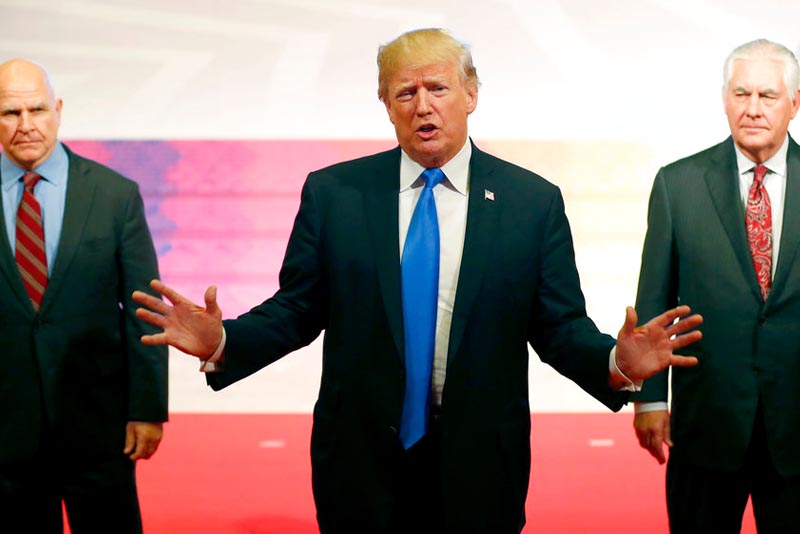Harley


Donald Trump is hopping mad at motorcycle manufacturer Harley Davidson. This is after the company announced they would be moving plants out of the US as a consequence of retaliatory tariffs imposed on its iconic products.
In a recent tweet, Trump said Harley Davidson should “never” move out of the US. If they do, he threatened them with more taxes.
That threat will likely not encourage Harley to stay. If at all, it will escalate the company’s plans to move out of the country and as far away from Trump as possible.
The tariff-happy US president does not seem to be aware the motorcycle manufacturer already has about five manufacturing facilities outside the US. If Trump continues to pressure Harley, the iconic motorcycle would cease to be an American product.
Unless they move out to new plants elsewhere, Harley stands to lose about $100 million from the retaliatory tariffs slapped by the EU and others in response to Trump’s steel and aluminum tariffs. The more the trade war escalates, the more US companies could be put under pressure.
Recall that Trump began imposing tariffs on imports on the belief that he would be defending American jobs. That is not how the economics of it works.
Harley Davidson, as an enterprise, is not in the business of providing jobs for Americans. Its main concern is to be cost-competitive in the global marketplace.
This is especially true in the case of motorcycles. US buyers of motorcycles are rapidly declining while European buyers of Harleys are rapidly increasing. The future of the company is selling outside the US. Increased trade frictions will prevent them from doing that and likely force them into bankruptcy. Their only option is to move plants elsewhere – no matter the ignorant and useless threats Trump might be making against them.
Given the iconic status of the Harley brand, this case will be closely observed. It is the first to go. It will certainly not be the last.
Mid-Continent
America’s largest nail manufacturer is “on the brink of extinction” because of the Trump tariffs.
Last week, the Mid-Continent Nail plant in Poplar Bluff, Missouri laid off 60 of its 500 workers because of rising steel costs. This is a direct consequence of the 25 percent tariff Trump imposed on imported steel.
Mid-Continent Nail is the largest US manufacturer of nails. When they reflected the higher costs of steel in their end products, orders plunged 50 percent. This could not be sustainable. It will soon be cheaper to buy imported nails than to manufacture them in the US. This will result in loss of US manufacturing capacity.
Tariff walls serve no nation’s ability to compete in the present global economy. They merely force added costs to consumers. Trump fails to grasp the microeconomic dynamics of this. He will end up punishing his own political base.
Political base
This is the irony of it all: by slapping tariffs on key imports, Trump is trying to please his equally uninitiated political base. Both he and his voters labor under the illusion that tariff barriers will protect American jobs.
Conscious of the political dimensions of Trump’s anti-trade moves, other countries have carefully chosen the US products on which retaliatory tariffs will be imposed. The goal is to deny Trump the political profit he hopes to gain with his destructive attacks on trade.
The EU, for instance, imposed tariffs on iconic American products such as motorcycles and blue jeans. China has targeted soybeans and coal. India is targeting manufactures from the US Midwest.
All these retaliatory measures will hit the economies of the so-called “Red States” that support Trump. This will deny the American president whatever political gains he imagined he could have by attacking the free trade status quo. All the other countries are conducting the trade war a lot more smartly than Trump.
Among the most diehard Trump supporters are coalmining communities whose economic prospects have been restricted by environmental regulations. However, the fastest growing market for coal is China. The world’s second largest economy simply has to shift its orders to other coal exporters as a retaliatory measure.
The effect of China’s retaliatory tariffs is to render US coal too expensive for domestic use. As a consequence, American coal exporters now hold stocks of the commodity, some of them en route to China, which they could not sell. Third countries, such as the Philippines, could bid very low to take advantage of the predicament of American coal exporters with distressed cargos.
Trump was last heard threatening to impose tariffs on European car exports. Should the other countries retaliate in kind, this could spell the death of the US auto industry. America’s Rust Belt could find itself in an even harsher predicament. The US auto industry could suffer the same fate as the British car industry in the wake of Brexit.
As the US raises tariff barriers around her economy, the other countries will begin trading more intensively among themselves taking advantage of free trade agreements. China, for instance, will source more of its coal needs from Australia, its oil needs from Russia and its soybean needs from Brazil.
This is why China is responding to Trump’s tariffs so self-assuredly. All its main imports from the US are replaceable by imports from other countries. American exporters, by contrast, do not have such options.
Over the longer term, the US economy will be more isolated as the trade linkages shift. Their export platform becoming unworkable, expect an exodus of manufacturing from the US.
- Latest
- Trending

























